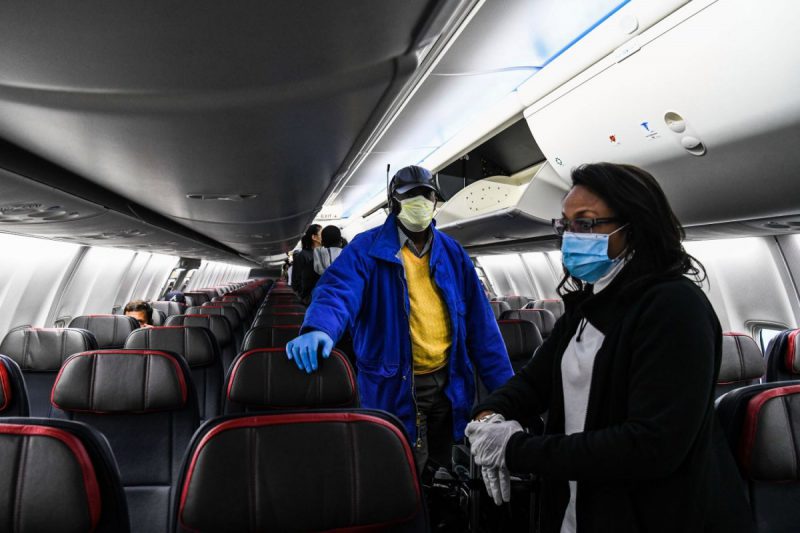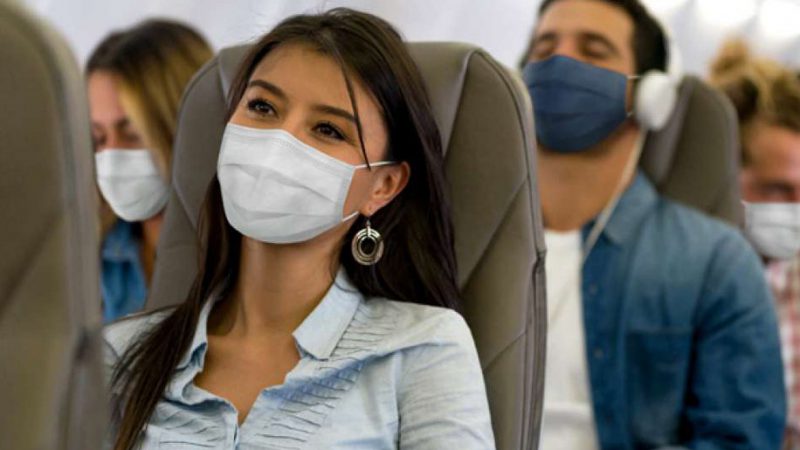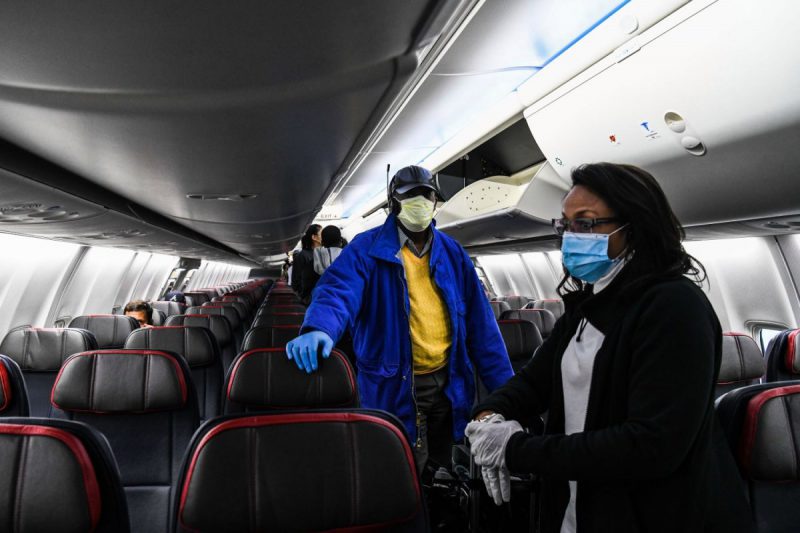Harvard Study: Disinfecting, Masks ‘Essential’ to Healthier Flying
The latest update to the ongoing research urges a multi-layered approach including cabin cleaning and masks worn throughout travel
October 6, 2020


A just-released technical bulletin, part of an ongoing study from Harvard University’s T.H. Chan School of Public Health, reports that disinfecting aircraft cabins is a key part of a multi-layered public health risk-reduction strategy.
The report finds that, although contaminated surfaces account for less than 10 percent of virus transmission, diligent cleaning protocols, combined with a number of other strategies, offer significant protection for air travelers.
Harvard’s latest bulletin notes that airlines should focus cabin cleaning on high-frequency touch surfaces, with systematic disinfection of surfaces between flights on a daily basis.

Earlier findings by the Harvard researchers emphasized the importance of wearing face masks throughout the air travel journey, “including time spent in the airport, boarding, in-flight, and deplaning”.
The study’s conclusions reference recent research that suggests the universal use of masks in settings such as those on aircraft may reduce infection risk from respiratory particles to less than one percent.
“Face masks are an essential part of a comprehensive set of measures to reduce transmission of COVID-19 throughout air travel”, according to the report.
The airline industry has implemented a series of steps to mitigate the risk of spreading the virus, including the use of face masks, traveler health declarations and aggressive cleaning protocols to reassure travelers. A more recent proactive approach by a number of carriers has been the implementation of rapid testing administered pre-flight in place of blanket quarantine policies.
“When the use of masks is implemented with other measures built into aircraft operations, such as increased ventilation with HEPA filtration in the aircraft, and disinfection of surfaces, these layered [interventions] offer significant protection from acquiring COVID-19 through air travel,” the report states.
“Current research in infection control recommends enhanced cleaning be combined with other risk reduction strategies by airports, airlines, passengers, and aircraft crew members to minimize the amount of infectious virus in the environment,” according to the Harvard report. “These include screening and health attestations to help exclude symptomatic people, use of advanced ventilation and filtration systems on aircraft, and personal protections such as wearing face masks and good hand hygiene.”




